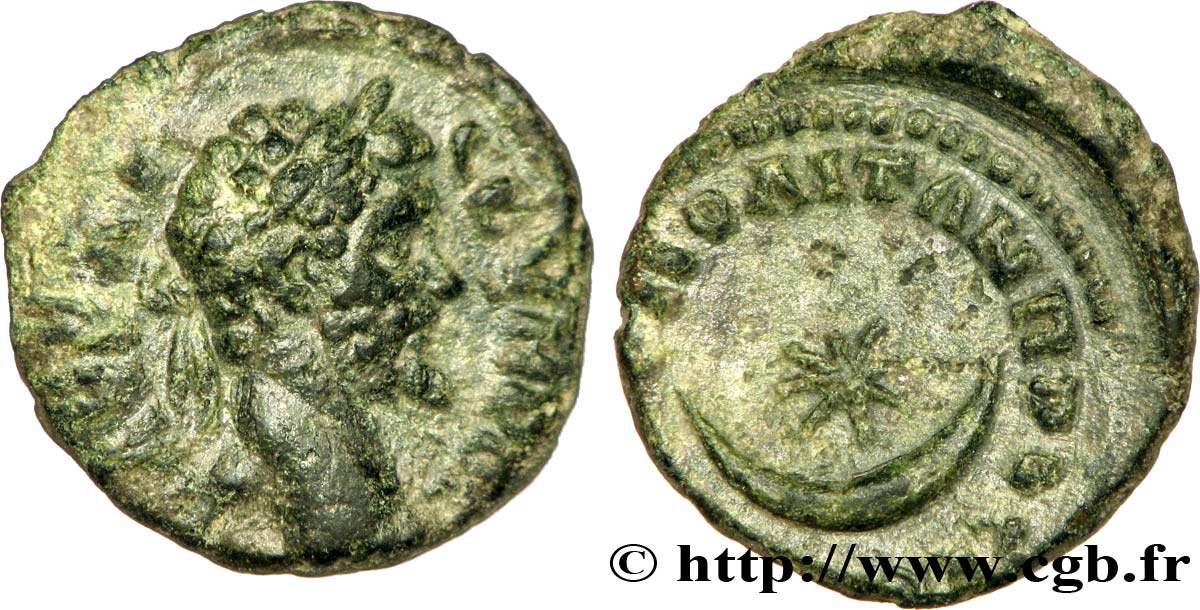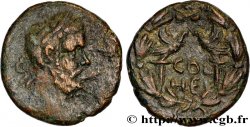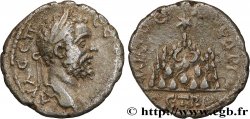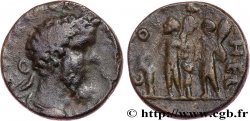bpv_276919 - SEPTIMIUS SEVERUS Assarion
95.00 €(Approx. 100.70$ | 80.75£)
Quantity
Add to your cart

Type : Assarion
Date: c. 200
Mint name / Town : Nicopolis ad Istrum, Mésie Inférieure
Metal : copper
Diameter : 17 mm
Orientation dies : 7 h.
Weight : 2,76 g.
Rarity : R1
Coments on the condition:
Beau portrait. Très belle patine vert olive clair / Revers légèrement décentré au niveau de la légende
Predigree :
Cet exemplaire provient de MONNAIES VIII, n° 284 et de la collection Claude Lainé (emblème luni-solaire)
Obverse
Obverse description : Tête laurée de Septime-Sévère à droite (O*).
Obverse legend : AU KAI - SHUHROS (Autokrator Kaisar Seuhros).
Obverse translation : (L'empereur césar Sévère).
Reverse
Reverse description : Croissant de lune surmonté d'une étoile à huit rais.
Reverse legend : NIKOPOLITWN PROS IS[TRON].
Reverse translation : (Nicopolis près d’Istrum).
Commentary
Rubans de type 3. Cet exemplaire est cité dans l’ouvrage de Varbonov, I, (p. 226, n° 2503). Petite étoile à huit rais.








 Report a mistake
Report a mistake Print the page
Print the page Share my selection
Share my selection Ask a question
Ask a question Consign / sell
Consign / sell
 Full data
Full data



